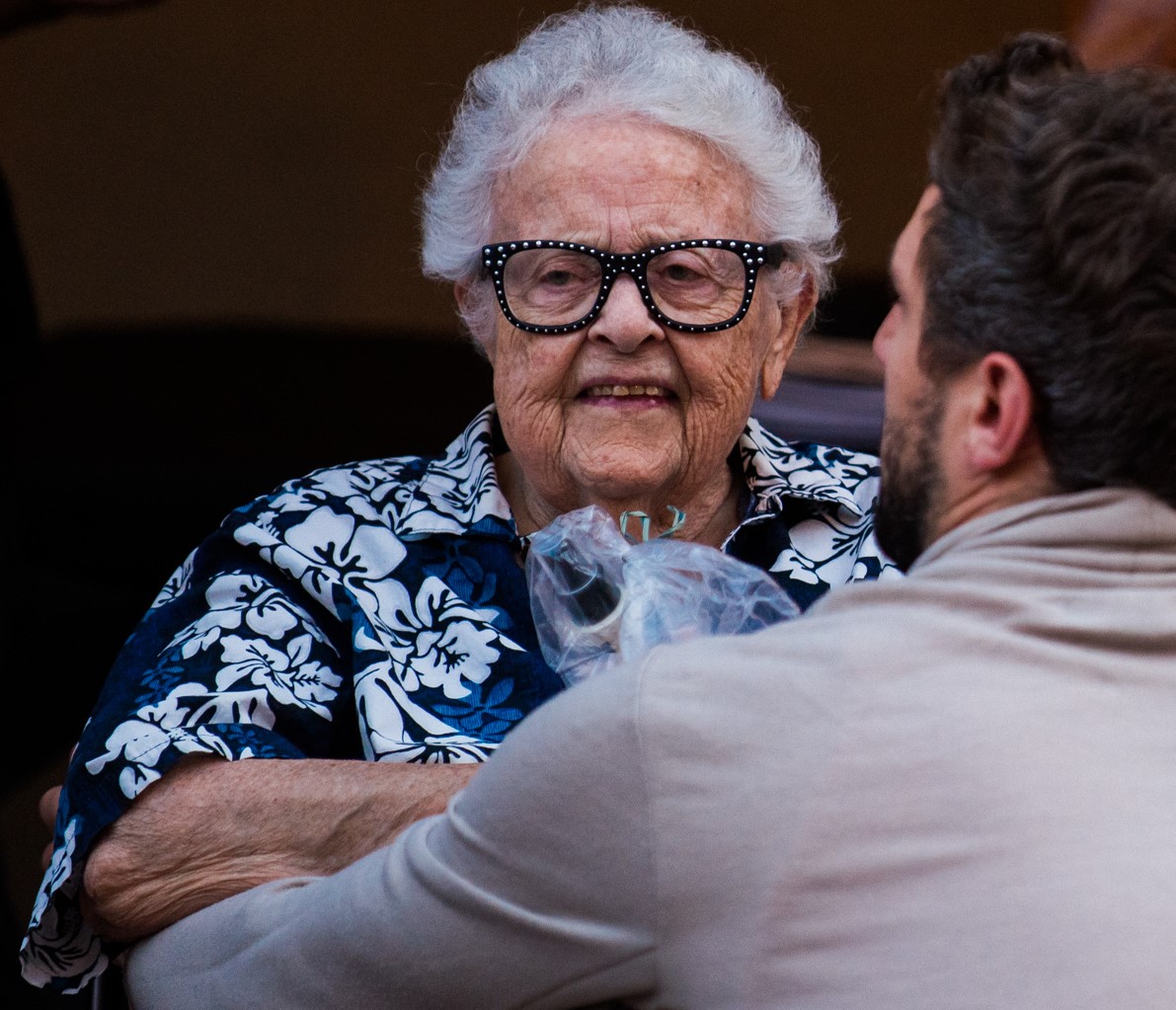
- photo by Jonathan Moore, courtesy of the City of West Hollywood
In Appreciation: Ivy Bottini: 1926-2021
By West Hollywood Councilmember John Erickson
West Hollywood lost a hero when Ivy Bottini passed away on February 25, 2021. Ivy’s life was the very definition of activism. After moving to Los Angeles in 1971, Ivy jumped into the gay and lesbian rights movement, where she co-founded the Coalition for Human Rights, AIDS Network LA, and AIDS Project Los Angeles (now APLA Health).
Her prominence in defending and advancing LGBTQ rights was first seen when she served as the Southern California deputy director of No on 6, the campaign created to defeat the Briggs Initiative. The Briggs Initiative (Proposition 6) was a referendum on the California state ballot in the 1978 election that was sponsored by John Briggs, a conservative politican from Orange County. The failed initiative sought to ban gays and lesbians from working in California’s public schools.
In 1986, following the success of No on 6, Ivy chaired the No on the LaRouche Initiative (Proposition 64) campaign. Activists associated with conspiracy theorist Lyndon LaRouche formed the “Prevent AIDS Now Initiative Committee” (PANIC) to place Proposition 64 on the 1986 state ballot. Prop. 64 would have added AIDS to the list of communicable diseases, a step toward the LaRouche camp’s goal of quarantining HIV-positive people. The measure was defeated by a margin of 71% to 29%.
Ivy also served on the City’s Lesbian and Gay Advisory Board (LGAB) and it was here where she first advanced the idea of a monument to memorialize the lives lost to AIDS and to commemorate the people dedicated to the care of people living with HIV/AIDS. At that time, other members of the community with a similar idea got together with Ivy and her dear friend Ruth Tittle, and that group laid the groundwork for what would become the Foundation for the AIDS Monument.
Bottini’s life and activism had a significant impact on so many individuals, whether they knew it or not. Like so many people, I met Ivy when I first moved to the City of West Hollywood. Ivy’s presence was unmatched at any city meeting or event and like the proverbial godfather, if you wanted to be a community activist, you needed to first get her blessing.
Ivy loved working with people and helping them realize and hone their passions. This was my story, like so many individuals before me, with her. As a male feminist and a member of the National Organization for Women (NOW), I had heard and known of Ivy’s impact and work. From designing the logo that NOW still uses to this day to the expulsion from the NOW’s leadership by then President Betty Friedan because Ivy started a public dialog about lesbians in the feminist movement (“the lesbian menace”), Ivy was an icon in every sense of the word.
However, to me, Ivy was always just the friend and mentor that I could call with any problem or issue I had. While I’d like to think of my experience as unique, it is no surprise that Ivy played this role for so many and, as a result, she changed countless lives and communities for the better.
Ivy’s death at the age of 94 reminds us all that no matter what age you are, you can have an impact and make a difference for so many individuals. The life and times of Ivy Bottini prove that one woman can change the world and, even in the process, inspire a young gay man from Ripon, Wisconsin to run (and win) a seat on the West Hollywood City Council.
Because of Ivy, so many of us remained safe and alive in our communities when our governments and families turned on us. Because of Ivy, we found that home may not be where we were born or raised but in a place called West Hollywood.
John Erickson is a City of West Hollywood Councilmember and a Council Liaison to the Foundation for the AIDS Monument.